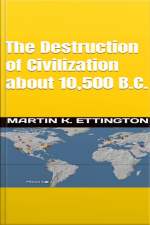This is a special production from SoundCraft Audiobooks, the eighth volume in the "History's Greatest Speeches" series and the second to feature the voices of some of the most...
This is a special production from SoundCraft Audiobooks and is Volume 9 in the "History's Greatest Speeches" series.The struggle for human rights, emancipation, civil rights,...
There is much of human history which we don’t know due to lost records, the oceans covering our ancestor’s cities, natural disasters, and reasons we don’t know.There are...
"Nenhum homem é uma ilha, inteiramente isolado; todo homem é um pedaço de um continente, uma parte de um todo. Se um torrão de terra for levado pelas águas até o mar, a...
‘A Letter Concerning Toleration’ by John Locke was originally published in Latin in 1689. It was Locke's response to the problem of religion and government; he proposed...
Civil Disobedience is an essay by American transcendentalist Henry David Thoreau that was first published in 1849. In it, Thoreau argues that individuals should not permit...
‘The pre-eminent historian of Bletchley Park cuts through the hype about the Special Relationship to tell the gripping stories of what has been achieved in secret through...
This book is my second on stranger than science stories and facts. The idea is from the book “Stranger Than Science” by Frank Edwards that I read when I was a kid. It made a...
Over the centuries there have been people able to influence the course of events to the point of changing history. Sometimes they are bulky personalities who have directed the...
Cities and countries engulfed by panic and death, desperate for vaccines but fearful of what inoculation may bring. This is what the world has just gone through with Covid-19. But...











